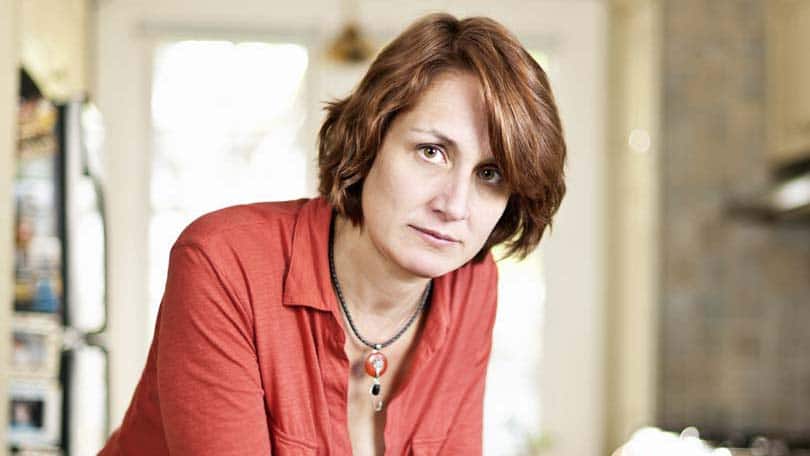
Open Letter
Dear Reader,
Remember the time when school teachers drilled us on proverbs and quotes during English class? We’d fill our notebooks with these words of wisdom, some of them influencing our thinking and social behavior.
I have two favorites which have influenced me the most:
- (1) Silence is golden
- (2) If you have nothing to say positive about a person, don’t say it
I have a message to share with you. This open letter is timely, because medical marijuana has “hugged” newspaper headlines here in Canada, and our government is finalizing legislation on its use. Even more welcome news is that Health Canada has published a list of licensed producers on its website.
Marijuana, once believed to be one of many causes of society’s descent into moral decadence, is now being hailed as a “savior” to millions of people immobilized by health problems. While many won’t admit to using marijuana because of the social stigma it once had, there are those who will wholeheartedly say that medical marijuana has given them back the desire to live their lives to the fullest.
My point? If you’ve never suffered debilitating pain, or have never gone through an episode of mental illness, or have never felt the nauseous effects of chemotherapy, don’t judge people who use medical marijuana. They have good reasons for doing so.
Silence is Golden?
Yes, it is, but only up to a certain point. Please speak up – like I did – about what’s ailing you. Don’t be embarrassed. Why?
Reason 1: because friends, family, and even strangers may be silently fighting a personal battle against failing health, eroding their quality of life.
Reason 2: by speaking up, someone might kindly suggest an alternative to prescription drugs. Some people take OxyContin (oxycodone), an opioid painkiller. When it is no longer helping because of habitual use, medical marijuana can do as good a job for diminishing pain, if not better.
Anyone could be suffering in silence – you might know them personally or they may be complete strangers.
The smiling girl behind the counter of the convenience store – she takes painkillers. Twelve years ago, her boyfriend rammed his motorcycle into a steel door, sending her flying 100 feet from the ground. She hurt her back, shoulders and right leg. She has never fully recovered, and her pain has become worse so she begs her doctor to increase the dose of her painkillers.
Your colleague at the office talks incessantly about her son’s depression. There are days when he acts normal, but most of the time, he locks himself up in his room and cries. Or else he sleeps or stays in bed all day, unwilling to wash or join the family for meals. Imagine his agony, and the agony of his parents.
The neighborhood florist down the street is forced to leave her job because her epileptic seizures have sucked the life out of her. Floral decoration is her passion. “Never a dull moment” she’d say when asked why she loves her job. “Flowers have been known for their healing powers – when I was younger and had a seizure, I knew that as soon as I arrived at the shop, my fatigue from the epilepsy would disappear.” It was like that until she turned 55 when her epilepsy became more severe. “I’m afraid my flowers can’t heal me anymore.”
Andy, manager of a car dealership in downtown Ottawa desperately wants to help his mother-in-law manage the after-effects of her chemotherapy. Chemotherapy has not only made her physically miserable, it has also killed her spirit. Andy heard someone in the hospital say about how marijuana has turned out to be a blessing for a cousin. He wondered if his mother-in-law would consider it.
If you have nothing positive to say, don’t say it
Medical marijuana is the best thing that has ever happened to thousands, if not millions, of people suffering from various health problems. It is a positive development in the field of medical research!
Before you disagree, consider these facts:
Fact 1: medical researchers discovered that chemicals in the marijuana plant called cannabinoids, can help alleviate certain medical conditions like cancer, AIDS, multiple sclerosis, and epilepsy. While researchers and doctors continue to seek more evidence to demonstrate marijuana’s benefits, more and more people are convinced that medical marijuana has helped them cope better with their disease. For example, medical marijuana has helped increase the appetite of AIDS patients, or that it can help control seizures, “especially for difficult-to-control conditions like Lennox-Gastaut syndrome (LGS) in children and adults, and Dravet syndrome in children”, the Epilepsy Foundation reports.
Fact 2: Medical marijuana does not lead to dependence. In an article online, it was reported that “fewer than 10% of those who try marijuana ever end up meeting the clinical criteria for dependence.” The dependence rate is higher for smokers (32%) and for drinkers (15%).
Fact 3: The history of marijuana dates back 12,000 years and has been used in countries like India and China for the last 5,000 years. As a friend said, God created the marijuana plant, humans have refined it and promoted its healing properties. A member of his family who has started using medical marijuana is in less pain, walks better, and gets a good night’s sleep.
So if it has become legal in Canada, in some US states, and in countries like Australia, Bangladesh, Cambodia, Canada, Chile, Colombia, Costa Rica, the Czech Republic, Germany, India, Jamaica, Mexico, the Netherlands, Portugal, South Africa, Spain, Uruguay where cannabis laws are the least restrictive, who are we to judge people who use it? Living in constant pain is a terrible curse, let’s not deny them the right. And let’s refrain from passing judgment.
Fact 4: Medical marijuana can be taken in different forms: as a paper-rolled cigarette, as a beverage, as an ingredient in cooked foods (like cookies), as a pill, as a vaporizer. Depending on the form, one feels the effects within minutes or within an hour or two. If you live in a state or province where medical marijuana is legal and you have your doctor’s approval, go for it! Some people have also been granted licences to grow marijuana. In Canada, 74 licences have been granted, the highest number of licences being in Ontario (41) and British Columbia (17).
Source: https://www.canada.ca/en/health-canada/services/drugs-health-products/medical-use-marijuana/licensed-producers/authorized-licensed-producers-medical-purposes.html
Don’t criticize users because even your government has allowed the use of medical marijuana!
Fact 5: word of caution: while medical marijuana helps alleviate symptoms of certain diseases, it does carry some risks. It should be used for medical reasons, not because you want to get high. Pregnant women should not use medical marijuana; people with asthma or breathing disorders are strongly discouraged from using it. It is also not recommended to people who have been diagnosed with psychosis. Do not self-medicate with medical marijuana. Speak to your doctor. He or she is the best judge of whether marijuana is safe for you.
Conclusion
If your health problems affect your quality of life, medical marijuana may be the answer, but consult your physician first. It is NOT a cure-all, but it may help alleviate some symptoms. Using medical marijuana is nothing to be ashamed of, so speak up! Millions are already using it.
Don’t judge people who use medical marijuana. Instead, be happy for them.
(Signed)
A happy and relieved marijuana user





